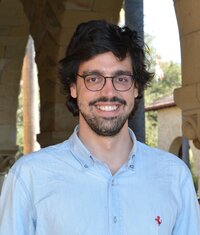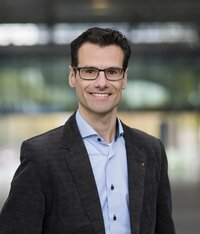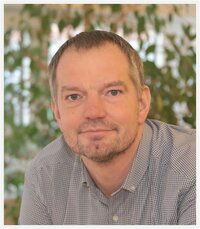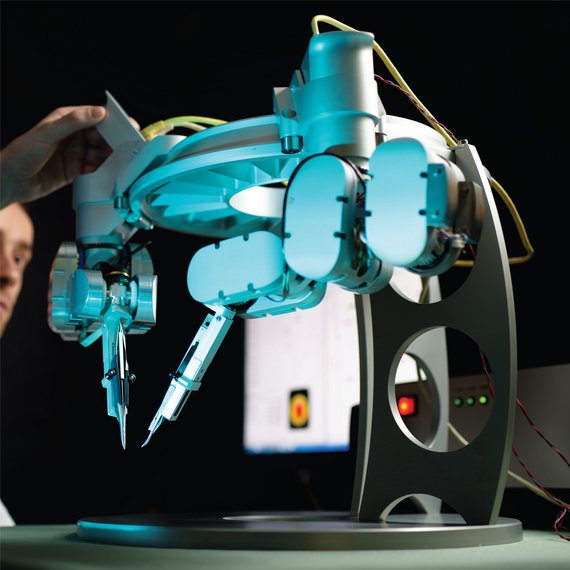Date
Tuesday July 12, 2022 from 1:00 PM to 5:30 PMLocation
European Control Conference (London)Organizer
Control Systems TechnologyFor more information and registration: https://ecc22.euca-ecc.org/workshops/#Workshop1
The automotive industry is undergoing an extensive powertrain transformation process: Conventional engines are being hybridized whilst full-electric vehicles are slowly pervading the market. Different powertrain and energy-carrier technologies are being investigated for applications ranging from passenger cars to heavy-duty trucks, whilst sophisticated control algorithms are being studied to minimize their environmental impact.
As we strive for a transition towards a zero-emissions mobility, it becomes more critical that we answer questions about the future of automotive systems:
- How can we design powertrains that are sustainable and market-competitive?
- How can we leverage recent advances in vehicles’ autonomy and connectivity, as well as in on-board sensors’ availability and computational power to improve their performance?
- How can we attain a zero-emissions well-to-kilometers mobility?
- How can we ensure smooth deployment and integration into the existing infrastructure?
- How will this affect the transportation infrastructure at large?
This workshop will gather experts from automotive, mechanical, electrical and control engineering, in order to:
- identify challenges and opportunities for the future of automotive;
- identify modeling, design and control methodologies to address them;
- share insights from early deployments and turn such insights into an actionable research roadmap.
Topics of Interest
- Theoretical modeling and analysis methods
- Design and optimization tools
- Real-time control algorithms
- Simulation tools
- Technology infusion
- Real-world case studies
Intended Audience
This workshop is geared towards researchers, industry practitioners and public officials whose work involves the design, deployment, operation, or regulation of automotive systems. The workshop will present a variety of tools and studies on the future automotive systems and will prompt fruitful conversations from the variety of stakeholders.
Program
| Time | Presenter | Information |
| 13:00 – 13:15 | Mauro Salazar | Introductory remarks |
| 13:15 – 13:45 | Anna Stefanopoulou | Test and Learn Inter-Cycle Features for Battery 2nd Life Prognostics and Planning. Accurate predictions of degradation and lifetime of lithium-ion batteries are essential for reliability, safety and key to repurposing. If the battery stays healthy, vehicle to building, vehicle to grid, and other 2nd life applications can provide additional value streams. Unfortunately, estimating the battery health with high confidence can only be done under certain use patterns. Identifying the physical origin of the degradation is even more difficult but very important because it can inform the battery management system and hence prevent further degradation. To this end, I will show you how the battery swelling provides “aging wrinkles” that inform us of the internal battery degradation modes. I will also show an adaptive inter-cycle extrapolation algorithm that allows us to simulate the entire lifetime of the battery in seconds for real-time decisions. The accelerated simulation when the model states feed and are fed by the evolving degradation (SEI growth and loss of active material due to particle stress) at each cycle allows us also to iteratively tune (learn) degradation parameters to match experimental observations of capacity fade, loss of lithium inventory and individual electrode capacities (features) from both cycling and calendar aging. |
| 13:45 – 14:15 | Lars Eriksson | The role and impact of open source models supporting research and development on complex powertrains for sustainable transportation. Model based development is seen as a key methodology for handling the complexity and guiding the development and optimization of future complex hybrid electric vehicles. It can help reduce the time to market and thus increase the pace of innovation, but a cornerstone for a high innovation pace is the availability and reusability of models. In this presentation, we will follow the initiation and development of a diesel engine model that has been much used and evolved over the years to become used in a wide range of applications beyond the initial intentions. Starting as a model for a long haulage truck it has been refitted to a passenger car, reused in a diesel electric powertrain in an off-highway application, reused as building blocks for a large marine engine model. It is now the cornerstone in a benchmark model for development of planning strategies in future connected vehicles as well as in a model for studying hybrid vehicles and how the powertrain interacts with the after-treatment system. Much of the success of the model, builds on the fact that it is component based, systematically developed and adapted to a real-world engine and that it was released as an open source model that can be freely downloadable and modified. |
| 14:15 – 14:45 | Sergio Savaresi | Pushing the autonomous car at its limits: the role of autonomous motorsport. One of the most critical challenges in the development of the fully-autonomous car will be the management of the “emergency maneuver”, when the car must properly react in critical conditions of road friction, dynamics, scenario complexity. Autonomous motorsport (recently born) represents an effective platform and environment to help the development of this highly-critical control module. The motivations, role, possible formats, and expected developments of autonomous motorsport will be presented. |
| 14:45 – 15:00 | Break |
|
| 15:00 – 15:30 | Nikolce Murgovski | Fast charging, thermal management and eco-driving of battery electric vehicles. As electric vehicles are hitting the market, customer expectations have risen to using these vehicles in various climate conditions and on routes that are longer than their electric range. In this work we propose a control strategy to optimise the grid-to-meter energy efficiency, fast charging cost and trip time of an electric vehicle, by controlling mechanical, electrical and thermal dynamics under cold ambient temperatures. We formulate an optimisation problem as a hybrid system, where the dynamics in driving and charging modes are modelled with different functions and with different state and control vectors. Moreover, to improve computational efficiency, we propose taking decision along the travelled distance in driving mode, and along a normalized charging time in charging mode. Optimal results applied on a route with intermediate and final charging show an intertwined relationship between the usage of the thermal system, charging and trip time, and the overall energy cost. |
| 15:30 – 16:00 | Marcel Menner | Combining Physics-based Models and Data for Fast Deployment in Autonomy. Commissioning a control system or designing a controller for automotive systems requires considerable manual calibration effort to meet certain specifications, which slows down the development process. In this presentation, we show how the combination of physics-motivated mathematical models and data can be leveraged to design control systems and to facilitate fast deployment. In particular, we present model-based concepts for automated controller calibration and for energy-optimal control of electric vehicles with multiple motors. |
| 16:00 – 16:15 | Break | |
| 16:15 – 16:45 | David Howey | Data-driven diagnostics of battery health. In this talk I will motivate the topic of battery health diagnostics and prognostics and discuss our recently developed methods for tackling this using probabilistic machine learning approaches to analyse lab and field measurements of voltage, current and temperature. We combine a simple electrical circuit model representing battery dynamics with Gaussian processes to represent the dynamics of the evolution of the battery model parameters such as capacity and resistance which indicate health. This can be implemented recursively and solved using a Kalman filter, enabling computational scaling and principled joint state-parameter estimation. These techniques are applicable in many battery applications, from automotive starter batteries, to electric vehicles and grid energy storage. Overall, the work highlights the opportunity to use cloud based `big data' techniques to understand battery health, extend lifetime and improve performance in real-world applications. References: (1) Sulver, V.; Mohtat, P. et al., Joule 2021, 5(8), 1934-1955; (2) A. Aitio and D.A. Howey, Joule 2021 5(12), 3204-3220 (also at https://arxiv.org/pdf/2107.13856.pdf); (3) Särkkä, A., Solin, A. and Hartikainen, J., J Machine Learning Research 2012, 22, 993-1001. |
| 16:45 – 17:45 | Panel Discussion |
Workshop organizers

Mauro Salazar is an Assistant Professor in the Control Systems Technology group at Eindhoven University of Technology (TU/e). He received the Ph.D. degree in Mechanical Engineering from ETH Zürich in 2019. Before joining TU/e he was a Postdoctoral Scholar in the Autonomous Systems Lab at Stanford University. Dr. Salazar’s research is at the interface of control theory and optimization, and is aimed at the development of a comprehensive set of tools for the design, the deployment and the operation of sustainable mobility systems. Dr. Salazar received the Outstanding Bachelor Award and the Excellence Scholarship and Opportunity Award from ETH Zürich. Both his Master thesis and PhD thesis were recognized with the ETH Medal, and he was granted the Best Student Paper award at the 2018 Intelligent Transportation Systems Conference.

Theo Hofman is an Associate Professor at the Mechanical Engineering Department at Eindhoven University of Technology (TU/e). His research interests are developing integrated design methods that provide system-wide solutions for complex dynamic engineering systems. This research incorporates several related fields: automated computational design synthesis for discrete topology design using platform-based methods and constraint programming techniques, integrated plant and control design using model-based approaches. Current applications are high tech powertrain systems for the automotive and maritime engineering field. Results are new computer-aided engineering tools for product design making complex products affordable in a reduced time and new insights by applying these methods for a large range of fields that incorporate co design and design space exploration.
More information about the presenters

Prof. Anna Stefanopoulou is the William Clay Ford Professor of Technology at the University of Michigan. She was an assistant professor at the University of California, Santa Barbara, a visiting professor at ETH, Zurich, and a technical specialist at Ford. She earned her diploma in Naval Architecture and Marine Engineering (91, NTUA, Athens), her PhD in Electrical Engineering (96, UMICH, Ann Arbor). She has one book, 21 US patents, 400 publications (7 of which have received awards) on estimation and multivariable control of engines, fuel cells and batteries. She is a Fellow of the ASME (08), IEEE (09), and SAE (18).

Lars Eriksson is Full Professor in Vehicular Systems at Linköping University. He received the M.Sc. degree in Electrical Engineering 1995 and the PhD degree in Vehicular Systems in May 1999 both from Linköping University. During 2000 and 2001 he spent one year as a post doc in the Measurement and Control group at Swiss Federal Institute of Technology (ETH) in Zurich. Since then he has been employed at Vehicular Systems first as Assistant Professor then as Associate Professor and now as Full Professor.
Professor Eriksson is currently managing the engine laboratory at Vehicular Systems. His research interests are modeling, simulation, and control of internal combustion engines for vehicle propulsion in general, but with a focus on downsizing and supercharging concepts for improved fuel economy. His contributions are foremost on engine control and control oriented modeling of combustion engines. However, the research interest spans from the broad area of energy efficient vehicle propulsion into in-cylinder processes, where his research was the first to demonstrate real-time control of the combustion timing using information obtained from the ion current. He has published one book, three book chapters, and more than 185 international peer reviewed conference and journal papers. As the manager of the engine laboratory he has developed a well-established network of contacts with research groups both in academia and in industry.
Professor Eriksson is also active in the academic societies and is currently a member of the IFAC Technical Board as Chair for Coordinating Committee CC 7 on Transportation and Vehicle Systems. He is also Associate Editor for the Elsevier journal Control Engineering Practice, and has served as Adjoint Technical Editor for several conferences such as for example the IFAC World Congresses 2011, 2014 and 2017 and Advances in Automotive Control 2007, 2010, 2013, 2016 E-COSM 2006, 2009, 2012, 2015. He served in the roles as NOC or IPC Chairs for the events: E-CoSM 2009, 2015, 2018 and AAC 2016, 2019.

Sergio M. Savaresi received the M.Sc. in Electrical Engineering (Politecnico di Milano, 1992), the Ph.D. in Systems and Control Engineering (Politecnico di Milano, 1996), and the M.Sc. in Applied Mathematics (Catholic University, Brescia, 2000). After the Ph.D. he worked as management consultant at McKinsey&Co, Milan Office. He is Full Professor in Automatic Control at Politecnico di Milano since 2006 . He is Deputy Director and Chair of the Systems&Control Section of Department of Electronics, Computer Sciences and Bioengineering (DEIB), Politecnico di Milano. He is author of more than 500 scientific publications. His main interests are in the areas of vehicles control, automotive systems, data analysis and system identification, non-linear control theory, and control applications, with special focus on smart mobility. He has been manager and technical leader of more than 400 research projects in cooperation with private companies. He is co-founder of 10 high-tech startup companies. He is the team leader of PoliMOVE, the winner of the the Autonomous Challenge @ CES 2022 (first ever high-speed fully-autonomous head-to-head multi-agent race).

Nikolce Murgovski is an Associate Professor with the Department of Electrical Engineering, Division of Systems and Control, Chalmers University of Technology. He received the M.S. degree in Software Engineering from University West, Trollhättan, Sweden, in 2007, and the M.S. degree in Applied Physics and the PhD degree in Systems and Control from the Chalmers University of Technology, Gothenburg, Sweden, in 2007 and 2012, respectively. His research interests are in optimisation, optimal control, modelling, online learning and estimation. His typical research projects are within electromobility, autonomous driving and automotive active safety.

Marcel Menner is a Research Scientist at the Mitsubishi Electric Research Laboratories (MERL). He received the M.Sc. degree from the Technical University of Munich (2016) for which he was awarded the Degree of Excellence. He was a Visiting Researcher with the Massachusetts Institute of Technology (2016). He earned the Ph.D. degree in Mechanical Engineering from ETH Zurich (2020). Dr. Menner’s research combines algorithms with data and mathematical models for control, with applications to autonomous and electric vehicles.

David Howey is Professor of Engineering Science at the University of Oxford, UK. He leads a group researching modelling and control of energy storage systems, with a particular focus on Li-ion batteries for electric vehicles and grid/off-grid storage, funded by Faraday Institution, EPSRC, EU and industry. He received an MEng degree in Electrical and Information Sciences from the University of Cambridge in 2002 and a PhD from Imperial College London in 2010. He is co-founder of Brill Power Ltd., a company spun-out of his lab in 2016 focused on advanced battery management systems.
Previous Editions
The website of the first edition held online in June 2021 can be found here: Future Automotive Systems: Modeling, Design and Control (tue.nl)


